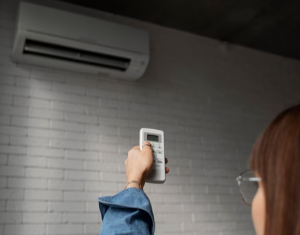 Air conditioning systems have become an integral part of modern comfort. They provide optimal temperature and humidity in rooms, which is especially important during the hot summer months. However, choosing the right equipment can be a difficult task, given the many options available. In this article, we will look at the key aspects that will help you make the right choice.
Air conditioning systems have become an integral part of modern comfort. They provide optimal temperature and humidity in rooms, which is especially important during the hot summer months. However, choosing the right equipment can be a difficult task, given the many options available. In this article, we will look at the key aspects that will help you make the right choice.
Types of Air Conditioning Systems
Split Systems
Split systems consist of two main units: indoor and outdoor. They are ideal for residential premises and small offices. Split systems provide high efficiency and low noise levels, which makes them a popular choice.
Multi-split systems
Multi-split systems allow you to connect several indoor units to one outdoor unit. This is convenient for large premises or buildings with several rooms. They provide individual temperature control in each room.
Cassette and Ducted Systems
Cassette and ducted systems are ideal for commercial spaces. They are installed in the ceiling and provide uniform air distribution. These systems may be more expensive, but their efficiency and aesthetics justify the cost.
Key Factors When Choosing an Air Conditioner
Room Size
The first step in choosing an air conditioner is to determine the area of the room you want to cool. To do this, you need to calculate the required air conditioner capacity, measured in BTU. The larger the area, the higher the power of the unit should be.
Energy Efficiency
Pay attention to the energy efficiency class of the air conditioner. High-class units (A and above) consume less electricity, which can reduce energy costs in the long run.
Noise Level
The noise level of the air conditioner is also important, especially if you plan to install it in a bedroom or office. Check the specifications of the unit and choose a model with low noise levels.
Additional Features
Air Filtration
Modern air conditioners are often equipped with filters that clean the air from dust, allergens, and other pollutants. This is especially important for people with allergies or respiratory diseases.
Control and Automation
Some models offer the ability to control via mobile applications or voice assistants. This is convenient because you can adjust the air conditioner remotely, which is especially useful if you forgot to turn it off before leaving the house.
Installation and Maintenance
Professional Installation
Proper installation of the air conditioner is critical to its efficient operation. It is recommended to contact professionals who have experience in installing air conditioning systems. This will help to avoid problems with the operation of the device in the future.
Regular Maintenance
Regular maintenance of the air conditioner prolongs its life and maintains its efficiency. Do not forget to clean the filters and check the system for refrigerant leaks. If you have problems, contact the specialists at hvac services.
Conclusion
Choosing an air conditioning system is an important step that requires a careful approach. Consider the type of room, capacity, energy efficiency and additional features. Don’t forget about professional installation and regular maintenance to ensure your air conditioner serves you long and efficiently.